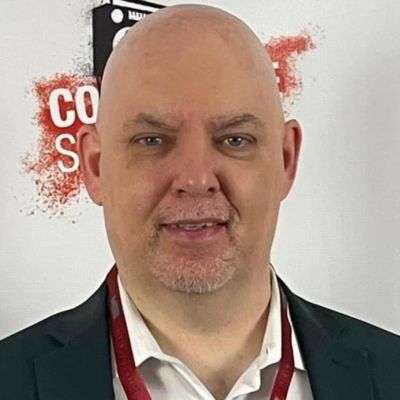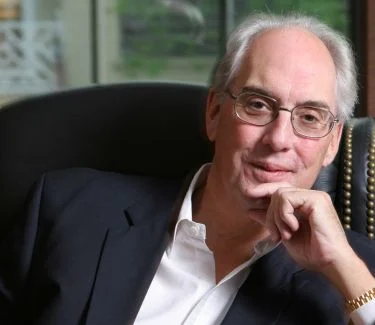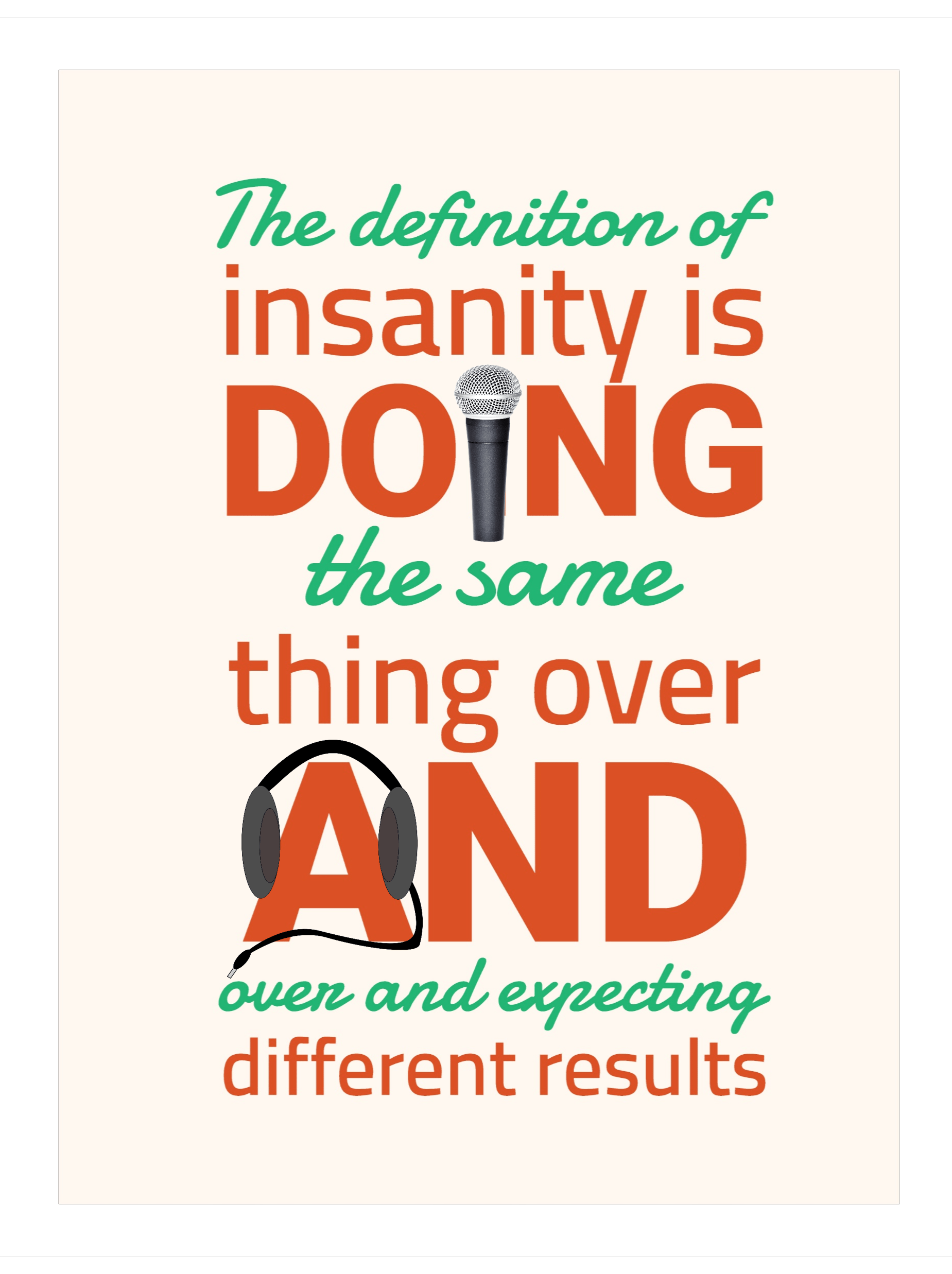
Last week was another difficult test for broadcast radio, especially those of us whose careers are in and around this troubled industry. While most of the broadcast radio’s publicly traded companies continue to see their stock prices buffeted by the lack of enthusiastic investors and the machinations of tariffs and DOGE, no one felt the effects of radio’s instability more than the estimated 300 employees no longer on the payroll at Audacy.
This version of layoffs, terminations, and pink slips on 2025’s “Black Thursday” was hard felt throughout this newly organizing company, impacting many industry veterans like Kansas City morning fixture Johnny Dare, as well as entire air and digital staffs at Audacy stations. For those who thought they had somehow survived the gauntlet of bankruptcy and the exit of David Field, last week had to be especially gut-wrenching. For many in the rank-and-file at some of radio’s largest companies, it must often feel like no matter how hard they work, the outcome is sadly inevitable.
Before I write another word, let’s acknowledge the pain and sadness being felt by the ex-Audacy staffers, their friends, family members, colleagues, and fans – all of whom will be missing them. As a small (and getting smaller) industry, we grieve for them and wish them the best in whatever’s next.
This new round of RIFs was well-covered by radio trades, but especially Barrett Media. Owner/CEO Jason Barrett (pictured) joined columnists John Mamola, Jeff Lynn, and Garrett Searight, each of whom weighed in with thoughtful commentaries about this event and its implications on the Radio business – capital “R.” Barrett Media also deserved kudos for its extensive coverage of the displaced, including their exit statements, along with their farewell social posts. Since the companies implementing these RIFs never follow up with inventories of who got the bullets, it is up to the industry trades to do their best to keep us informed.
each of whom weighed in with thoughtful commentaries about this event and its implications on the Radio business – capital “R.” Barrett Media also deserved kudos for its extensive coverage of the displaced, including their exit statements, along with their farewell social posts. Since the companies implementing these RIFs never follow up with inventories of who got the bullets, it is up to the industry trades to do their best to keep us informed.
Anyone who doesn’t feel the pain of those who lost their jobs in this newest downsizing has obviously never worked for a station before. And for those fortunate souls who managed to retain their positions at Audacy, many of them will now have expanded roles and new job duties, will now possibly do so for little-to-no additional compensation. And their worries about being victims in the next inevitable round of cutbacks has only intensified in the wake of last week’s purge.
 But hey, what do I know about what it takes to captain a large, publicly held company? To that point, the late Ed Christian (pictured), venerable founder and CEO of Saga Communications, used to regularly remind me and programming guru, Steve Goldstein, how little we understood about the financials of the inner-workings of the business by referring to the two of us as artisans, craftsmen, and Talmudic scholars.
But hey, what do I know about what it takes to captain a large, publicly held company? To that point, the late Ed Christian (pictured), venerable founder and CEO of Saga Communications, used to regularly remind me and programming guru, Steve Goldstein, how little we understood about the financials of the inner-workings of the business by referring to the two of us as artisans, craftsmen, and Talmudic scholars.
The implication, of course, is that programmers only know about the mechanics of content – playlists, clocks, copy, rating books – while its company leadership who’s tasked with the big boy decisions of determining profits, losses, salaries, and the vagaries of stock prices.
But in looking at the history of RIFs at Audacy and the many other companies caught up in the contagion of job cuts often focused on content creators, it brings to mind that increasingly popular definition of why many often feel like we’re losing our minds in this business:

As sales and revenues remain flat to down while stock prices mostly have tumbled, those of us not in radio’s corporate boardrooms may be hard-pressed to understand how cutting a company’s path to profitability remains a winning strategy, if indeed it ever was one. When I introduce a programming concept, CEOs have asked me for 42 years a simple question: “But Fred, where is it working?” And so in turn, I ask that same question as radio finds itself ensconced in an abyss bereft of no obvious strategy that can actually lead to a way out of this mess.
The interim team at this next iteration of Audacy issued a statement – or “rationalization” – that sounded eerily similar to how the previous group tried to explain these sweeping waves of cutbacks. Here’s an excerpt, posted by a guy who’s been around this block more than a few times, Bob Neil. He cut his chops in radio as a highly successful programmer before making the leap to the EVP of Cox Radio where he successfully served for nearly a quarter century:
The above statement included in Bob’s LinkedIn post was originally printed by Inside Radio. But it omitted what IMO is obviously the money line:
“…and to best position Audacy to continue serving listeners and advertisers with excellence.”
What does this say to those who lost their jobs this time around about their contributions to the company during what was objectively the most difficult and trying period in the company’s history? But also, what does it say to those still operating in “the belly of the beast,” doing the best work they possibly can under what is obviously not the best of conditions? What does it say about the value of the company’s remaining people?
In the now infamous words of former Clear Channel (forerunner of iHeart Media) CEO John Hogan, “Less IS More.” When that operating philosophy was launched more than two decades ago by radio’s biggest company, it was more about commercial inventory and rates. But it may as well have been about head count. Most radio companies have moved in the same downsizing direction, systematically cutting staff year after year in an effort to once-and-for-all achieve a balance between productivity, revenue, and expenses.
radio’s biggest company, it was more about commercial inventory and rates. But it may as well have been about head count. Most radio companies have moved in the same downsizing direction, systematically cutting staff year after year in an effort to once-and-for-all achieve a balance between productivity, revenue, and expenses.
It’s been an elusive goal for most of the major players in the industry to say the least. And it appears to have left most stations and their parent companies in a less agile state at a time when it is necessary to not only fend off new competitors, but also to proactively innovate. A tenet of progress in any field is to develop new products and services rather then simply repeat the same rote tasks year after year. And on that measure, most broadcasters have failed to answer the digital bell.
But none of us knows the pressures today’s executives are facing in a media environment that seemingly knows no bounds. Every company is being tested by corporate expectations, the need for speed, and their ability to cook up new solutions to existing problems while creating new product lines. I cannot pretend to even imagine what’s going on inside Audacy headquarters (or anyone else’s for that matter). As someone who has owned and operated my own businesses for decades, I know the pressure and feel the heat.
The mystery to me behind Audacy’s explanation/rationale for this recent RIF sounds like something only the cutthroats on Wall Street would appreciate. It seems like every time a company cuts X% of their workforce, their stock price shoots up accordingly. But in this case, the group sitting around Audacy’s conference room no longer has to specifically cater to statements that appear on CNBC. As a privately held company, their fate is now determined by their owners and investors, not contentious shareholders all over the world. Why continue to put out the same drivel the company was forced to embrace back in the days it was sliced and diced on the floor of the stock exchange?
As Jason Barrett suggests, why issue a banal, empty statement that everyone knows is corporate-speak. He suggests “Say nothing.” Not a bad idea, but an alternative might be to “rip off the band-aid” and actually publish a list of those terminated, their positions, stations, and markets. This would at least get the pain over and done with, rather than the trades continuing to publish ever more names of the displaced over successive days.
band-aid” and actually publish a list of those terminated, their positions, stations, and markets. This would at least get the pain over and done with, rather than the trades continuing to publish ever more names of the displaced over successive days.
And if publishing the list of 300 names (or whatever the final damage) looks too embarrassing or ugly, maybe someone in the conference room ought to rethink the decision, and come up with other things to cut. To that end, we may not know what a radio company’s leadership is enduring, but we do have a better sense of the toll this is taking on radio’s workforce – or what’s left of it. Fist bumps again to Jason Barrett and his team for giving all these social sayanoras oxygen in the pages of his newsletter and website. But why should they have to go through the victim-gathering process? Just like the airlines publish lists of the deceased when one of their jumbo jets crashes, a little transparency would be welcome.
Once you get beyond the raw numbers that make up a RIF, it comes down to the personal toll these cuts exact on the people who once worked countless hours on behalf of the company and its stations. Almost to a person, they are gracious and classy out the door:
To the wonderful David O’Leary and his many Audacy co-workers, we wish you the best.
In case you hadn’t noticed, radio’s sweeping staff cutbacks are transcending not just commercial radio, showing up in what I call PRIFs in public radio and CRIFs in Christian radio.
Perhaps overshadowed by Audacy’s massive housecleaning, New York Public Radio announced 7% job cuts across its properties, WNYC, WQXR, WNYC Studios, the Gothamist website, and other media holdings in the area.
While the company’s CEO, LaFontaine Oliver (pictured), spoke of these tough moves being necessary to achieve “a financially sustainable position,” he also spoke regretfully about this downsizing:
moves being necessary to achieve “a financially sustainable position,” he also spoke regretfully about this downsizing:
“These staffing reductions have taken place against the backdrop of a dynamic media and political environment that has demanded of us much change and adaptability. I know it hasn’t been easy, and I wish things were different.”
In Christian radio, you may recall Salem sold seven music stations last last year to EMF, the company that runs the K-LOVE and Air1 networks. As a result, many major market employees lost their jobs in markets that included Dallas/Ft. Worth, Atlanta, Cleveland, Portland (OR), and others.

I have read several stories analyzing what this sale means to the two companies of record, Salem and EMF. I have not read any detailed reports about how many radio professionals lost their jobs during this transaction, including veteran host and talent coach, Beth Bacall (pictured), formerly from the Fish in Atlanta, and last year, the Salem Music Network.
And then there’s taking empathy to a new level. I recently ran across a unique policy that will never become popular – but it sure is intriguing:
The boss helps the RIF’d employee pack up their belongings and escorts them out of the building. I read about it in a recent Entrepreneur story about former PayPal founder and current CEO of Affirm, Max Levchin. He tells the story of how inadequate he felt when having to let employees go:
“I didn’t know what I was doing and I was terrified of owning the responsibility that I screwed up,” he explained, saying he effectively hid from employees after they learned they had been let go.
 But, he says, a friend advised him that rather than hiding in his office, the better place to be was “in the middle of the floor that’s crying,” he recalled. “Go be with the people. You’ll feel better in the end and they’ll feel better in the end.”
But, he says, a friend advised him that rather than hiding in his office, the better place to be was “in the middle of the floor that’s crying,” he recalled. “Go be with the people. You’ll feel better in the end and they’ll feel better in the end.”
In the end, Levchin says this against-the-grain approach is a win-win-win for the fired employee, for the boss, and the rest of the team who have to show up for work the next day.
This level of empathy from the upper strata of most companies is a rarity, of course. And isn’t that what is making all those DOGE firings so egregious (most of them via email)? Stories about government employees having to pack up their belongings and hit the streets in a matter of minutes only fuel the emotions of Americans unhappy about how government downsizing is playing out.
But it goes beyond that to the implications that terminated workers were lazy, unproductive, and taking advantage of cushy civil servant gigs. And so it is in radio when companies instituting RIFs minimize their employees’ value by suggesting they will now achieve “excellence” by simply winnowing the herd.
Aside from the notion that no one buys this corporate speak, the message it sends to the remaining workforce, as well as the entire industry, is one of empty promises and vacant strategies.
As the Revolutionary War icon, Thomas Paine, famously stated in 1776:
“These are the the times that try men’s souls.” Women’s, too.
Those are inspiring words because they still ring so true. How leadership behaves “in the worst of times” tell us all we need to know about who they are.
 Are they making good on their promises and commitments?
Are they making good on their promises and commitments?
Are they telling the truth?
Are they performing difficult tasks with empathy, courage, and class?
Are they making personal sacrifices of their own?
Are they paying their bills and their financial commitments on time?
Are they treating their employees fairly as they’re walking out the door?
These may not be the true measures of a company’s performance, but they are the variables that matter to those who invest parts of their careers there.
A big part of the challenge of the AI Era will be determining the values of both workers and the tasks they perform, including when and where they do it. As a society, we are grappling with these issues right now. Based on the last decade or so, you’d like to believe the industry and its leadership can (and must) do better.
How radio’s leadership plays these cards over the next couple years may very well determine the long-term efficacy of the business and the future of the medium, not just for the current captains of this industry, but for the lifers who have invested their careers trying to make it better.
We must do better.
Since 2018, Jacobs Media, in collaboration with Morning Show Boot Camp, has designed and implemented the AQ studies, focused on ascertaining the perceptions of radio air talent on commercial stations. Today, starts a new effort in partnership with Christian Music Broadcasters. The “On Air Pulse” study is the first-ever focused on radio personalities on Christian music stations. If that’s you, please take this confidential survey here and then please forward this link to a friend who works on the air in Christian music radio. – FJ
- Will Radio Jump On TikTok’s “Silver Express?” - May 27, 2025
- Memorial Day 2025 – The Year Of Standing On Shaky Ground - May 23, 2025
- To Win In Radio, Make A Difference - May 22, 2025




Broadcast Stations must FOCUS on Broadcasting. That means the Broadcasters, their content, purpose, cost-efficent operaion and staff coordination without distriction from UFO’s.
Thank you, Clark.
Great take on this.
As always with radio, they know what to do, they just can’t do it. They know the only significant unique selling proposition they have programmatically is to provide in depth, localized service that no other product can provide.
But they can’t, cause that costs money…and they’re hamstrung by their stock price and the overlords of many debt ridden companies.
As the legendary Billy Preston sings…”nothing from nothing…”
PS…. Talmudic scholars def sounds like EC talking. LOL.
“Talmudic scholars” – always loved that!
He knew how to cut to the quick, didn’t he?
Good comments all, Dave (from your favorite Talmudic scholar).
When it was announced that I had resigned my position for a position outside of radio, another company reached out to me asking if I would be interested in talking to them about a similar position. I wasn’t really interested, but I talk to anyone who reaches out to me like we all do. During the course of this video call, there were three people in suits telling me how great their company was, how great I was, and expanding on the great work that we could do together. When they asked me if I had any questions, I asked them this; how does your company value this position? And they all stopped. they couldn’t answer. they went right to salary. And I stopped them and I told them I’m not talking about salary. I’m talking about growth potential and value in the programming department and the programming vision and mission of your company. I’ve heard more than once in my career that as a programming employee, I cost the company money. As does my staff. Clearly, while all these gentlemen in my video call were perfectly nice and I’m sure professional, none of them could explain to me the difference between value and salary. They’ve taken any humanity out of radio. That one video interview solidified my decision to get out of the business.
They need to clean house at the top! Poor decision making from upper management has cost them more money than they save from cutting local programmers and personalities. Disgusting.
This one question in your blog stood out for me – Are they making personal sacrifices of their own? When have we hard of CEO’s. CFO’s. CMO’s etc taking specific pay cuts INSTEAD of cutting from the workforce. Do we need all these national positions? Do we need all these Regional positions? Have they really asked those questions? I’m guessing if they did, they didn’t like the answers.
As always, Fred, you are spot on. Thanks!
John, I very much appreciate these comments. The answers cannot just simply be “Cut more peoplle.” As you suggest, there other questions that should be asked.
Thanks for advocating for the people of radio, Fred. The humans who give their all and work strange hours that are incompatible with their families and neighbors’ schedules; dedicate their evenings and weekends for station appearances and charity emcee work; and work 24/7 to plan shows, be fully prepped, and stay abreast of current events to best inform their communities when the on-air light turns on. Radio is an all-in career for content providers and talent. It’s not merely a job. It’s a lifestyle. I appreciate you acknowledging the people who make it happen, and who unceremoniously disappear overnight in a RIF as if they were never even there.
It’s no surprise, Julie, but you nailed it. Even in 2025, you describe what is still the “secret sauce” of radio then and now. Thanks to you and Gee for being a coouple of “those people” who always brought their A-game.
A brilliant, painful piece.
We are finding the truth about people with every headline.
Appreciate it, Brad!
Fred, an incredible blog post. Thank you for writing it.
I remember with joy the feeling of radio reaching out and grabbing me the first time I stepped into a studio as a 12-year old girl during a Girl Scout tour. The idea of communicating something worthwhile from one soul to another enthralled me, and I could pursue no other career.
Remember Marshall McLuhan and his “the media is the message”? Radio personified that – it was magic! It opened a portal to emotions and ideas that may have been difficult to access without it, and it could go with us wherever we went. Pure magic.
Now, it’s all about profits and efficiency. My, how radio – and the world – has changed.
Thanks for the kind note, Sherry. While radio has become that bottom line industry, most of the people on the air (like you) still brig that spirit to the experience. While not everyone listens to radio anymore, those who do feel the emmotional power of the medium.
Excellent, if painful) read, Fred. I was a part of several RIF’s with Jones Radio Networks, Dial Global and Westwood One. I survived all but the last. But not before being given the task of flying to Dallas and eliminating most of the former ABC 24/7 Formats (which Cumulus had acquired), as they had Westwood One’s), and devising a plan Borge programming and technical to merge their Format business into ours, which I successfully oversaw. Then, I was no longer needed, and remember, the Dickey Cumulus now owned us, so I can’t say I was surprised when I got the ax. No thank you for helping them create a merger to save money or even for the 34 years. They offered a pittance of a severance, for which I had to fight for by hiring our former Jones personnel attorney. The first RIF we did at Jones a few months following 9/11 was actually a minor event, but one which impacted every employee. The managers sat down and came up with a compensation reduction plan 10% for managers and 5% for all other employees). We determined it would take a couple of years at that level to keep going. Buy in was nearly unanimous when we announced no employees would lose their jobs. After we were acquired by Triton/Dial Global, we had a similar, people friendly approach we were able to negotiate with Triton. The good old days.
Phil, no matter what side of the fence you found yourself on, RIF are a painful (to use your word) process. And many managers hae found themselves in the horrific position of implementing RIFs – multiple times – only to get RIFed themselves. As a friend of mine loves to describe the basic “circle of life” in Mafia movies, “In the end, everyone gets whacked.”
Hits the nail right on the head. “We lose revenue every year but we make up for it by firing people” won’t be sustainable forever. I had a long post envisioned, but I’ll just say this – it’s never about expenses, it’s always about revenue.
Much awppreciated, Bob.
I am a little ambivalent about all this.
Although there may be some “fat” to be trimmed at the major groups, I have a feeling that it isn’t as much as they think. Some of the RIFs at Audacy confirm that in my mind … they’re cutting into the meat of their on-air operations, and that’s going to hurt them in the long run.
Eventually, they will cut so much that the audience will begin to notice a reduction in the quality of what they are hearing and start to defect … not to the other stations in the market but to other platforms. We’ve already seen enough of that, and it has to stop.
On the other hand, the station group I consult in Albuquerque is locally owned. The owner does not draw a salary. The salespeople have been taught production. I directly program two of the stations myself under a services agreement; The Eighties Channel™ is more akin to the syndicated formats of Drake-Chenault, TM, and Century 21 during the ’70s and ’80s, being essentially an automated jukebox. The other station I program is a Rhythmic AC with the station production director voicetracking mornings, the station owner doing generic liners in middays, and me doing afternoons via song tags. A third station in the cluster (which I do not consult) has live talent in both drive times but is automated with just imaging the rest of the time. I keep thinking we could do more, but right now ad revenue is just managing to cover operating expenses. I suppose we are much better off than the major players, but it still disturbs me to see these RIFs when the executive floor isn’t taking a pay cut first.
For someone who’s “ambivalent,” K.M., this is a pretty strong opinion it’s hard not to agree with. Thanks for the comment.
A thriving business cannot cut their way to prosperity. In some ways, Radio made itself irrelevant. Without compelling content, there’s no demand for the product. Obsolescence…
Amen.